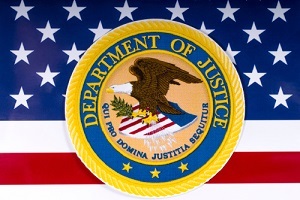DOJ Previews False Claims Act Enforcement Priorities for 2021

The False Claims Act is the federal government’s primary enforcement tool to combat fraud against the public. Every year the government recovers billions of dollars under the statute, primarily with the help of whistleblowers. Under the so-called qui tam provisions of the act, whistleblowers are authorized to act as private attorneys general and bring lawsuits on behalf of the government and recover a portion of the proceeds.
Last year was no exception to the continued success of this public-private enforcement partnership. DOJ reported roughly $2.2 billion in False Claims Act recoveries, with roughly three-quarters of that amount coming from cases initiated by whistleblowers. While more than 80% of last year’s recoveries involved healthcare fraud, the DOJ/Whistleblower enforcement sweep encompassed a wide range of fraudulent conduct. This included fraud relating to COVID-19, government contracts, government programs, just to name a few of the areas of heavy enforcement activity.
This year is looking to be no different as DOJ no doubt is looking to surpass last year’s total False Claims Act bounty. As high as it was, it still represented the lowest recovery amount in more than ten years. Perhaps signaling a new-found energy and enforcement appetite at DOJ, acting Civil Frauds Chief Brian Boynton recently laid out the agency’s enforcement priorities for the coming year at a speech he gave at this year’s Federal Bar Association Qui Tam Conference.
He identified six of them:
- The Pandemic. Referring to them as “inevitable,” Boynton pointed to the wide range of fraud schemes the agency is seeing and expects it will continue to see relating to the billions of dollars of CARES Act relief the government has doled out. Specifically, he said these schemes “will likely include false representations regarding eligibility, misuse of program funds, and false certifications pertaining to loan forgiveness.”
- Opioids. Boynton stressed how the pandemic has exacerbated the opioid crisis and how DOJ will target those responsible for triggering and fueling the epidemic. “We anticipate continued focus on pharmaceutical companies that marketed opioids with false and misleading statements, paid kickbacks to increase prescriptions, or targeted health care practitioners with a known pattern of problem prescribing.” Boynton also put within his agency’s opioid crosshairs “pharmacies that knowingly dispensed medically unnecessary opioids and clinics and doctors that prescribed opioids in exchange for patients agreeing to unnecessary testing or procedures.”
- The Elderly. Boynton made clear the agency’s commitment to protecting the elderly, especially as it relates to healthcare. This largely will focus on nursing homes and skilled nursing and rehabilitation facilities providing unnecessary or substandard care. “We will continue to pursue these matters actively and aggressively, to protect these vulnerable members of our community.”
- Electronic Health Records. As healthcare providers are increasingly moving to electronic records to increase the efficiency of healthcare delivery and improve treatment outcomes, it has introduced new opportunities for fraud and abuse. They generally concern misuse of health records software, misrepresentations about the capability of the software, or kickbacks to use the software. “Given the critical and growing role that electronic records play in our health care system today, and CMS’ continued use of incentive payments to encourage the use of such records, we expect to see more of these cases.”
- Telehealth. Telehealth services have always been an important vehicle through which to provide healthcare services to underserved communities. They have become even more vital these days in the face of the pandemic. But as restrictions have been relaxed, there has been an increase in fraud and abuse of this healthcare delivery channel. DOJ is hoping to put a stop to it.
- Cybersecurity. Boynton pointed to the growing threat of cyberattacks and how federal agencies are relying on strong cybersecurity protections to safeguard critical data and information. “To the extent that the government pays for systems or services that purport to comply with required cybersecurity standards but fail to do so, it is not difficult to imagine a situation where False Claims Act liability may arise.”
This listing is by no means the only areas of potential fraud for which DOJ will be on the look-out. It merely identifies some of the major areas the agency expects to see heavy enforcement activity. And as they have for decades, whistleblowers will be leading the way. As Acting Assistant Attorney General Boynton emphasized, whistleblowers “will continue to be an essential source of new leads, and the Department will continue to rely on whistleblowers to help root out the misuse and abuse of taxpayer funds.”
So to all you would-be whistleblowers out there, keep your eyes and ears open. DOJ is counting on you to say something if you see something. So are all the rest of us.
If you believe you might have useful information regarding potential fraud or misconduct and would like to speak to an experienced member of the Constantine Cannon whistleblower lawyer team, please do not hesitate to contact us.
Read More:
- Our posts on DOJ Enforcement Actions
- DOJ Reports Decline in Total Fraud Recoveries in 2020
- False Claims Act
- I Think I Have a Whistleblower Case
- Contact Us
Tagged in: COVID-19, Cybersecurity and Data Breaches, Electronic Health Records, FCA Federal, Government Procurement Fraud, Government Programs Fraud, Healthcare Fraud, Home Health and Hospice, Importance of Whistleblowers, Pharma Fraud, SNF,